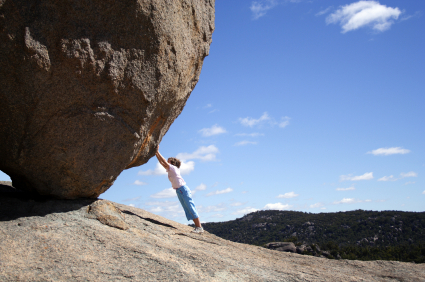Want to know how to change your life, achieve pretty much anything, and make yourself rich to boot? There is a huge “self help” industry out there eager to help you do it.
I bump up against this world frequently when researching and writing about lifelong learning, and I have to admit a bit of a love-hate relationship with it. On the one hand, so much of the advice that gets peddled seems hackneyed, poorly written, and derivative of concepts already established hundreds, if not thousands, of years ago.
On the other hand, there is obviously a deep human need to return again and again to the issues and concepts that pervade self-help literature. Some current writers do a very good job of returning to these issues and examining them in a fresh way. And I have to assume that many people do learn and grow from it – or at least try. Repetition, as they say, is the mother of learning.
So, I started thinking about the key themes and lessons that seem to show up in the self-help literature with which I am familiar. Knowledge of them can certainly be of use to the average lifelong learner.
Here are the seven that strike me as most fundamental. It seems to me that most other themes or habits fall into one of these seven buckets.
1. Desire
This is almost always #1 in the standard self-help literature. If you want to achieve “it,” you have to really want it. More importantly, with very few exceptions you must be conscious of the fact that you want it and you must be very clear about what it is. When it will happen, what it will look like…you get the picture.
2. Authenticity
While most self-help literature is about change – changing your life, becoming a different person – it is almost always rooted in the notion that you have to “know yourself” (or know thy self, depending on how far back you go) and be yourself if you want to succeed and be happy in your success. Make sure the “it” that you desire aligns with who you truly are.
3. Drive
As the old saying goes, “If wishes were horses, beggars could ride.” It is one thing to want something; it is another thing entirely to have the will to get it. Motivation plays a starring role in self-help literature, and for good reason: very few of us come equipped with self-sustaining will power. Closely related concepts like being “pro-active” and persistent come into play here.
4. Discipline
You can want it and have the will to pursue it, but you still need to cultivate and practice appropriate, consistent habits if you expect to succeed. It is important to remember that “discipline” derives from the Latin “disciplina,” meaning teaching or learning. Desire and drive alone do not add up to discipline. It must be learned.
5. Reflection
Reflection is arguably one of the key habits of discipline, but it also serves to counteract mindless discipline. In short, it is an important enough concept in self-help literature to stand on its own. Achieving your goals requires being conscious and thoughtful about how you are performing along the way. Doing so enables you to appreciate your progress and also to adjust as needed
6. Connections
While self-help literature by its nature tends to be very focused on the individual, I can’t think of a single example I have come across that doesn’t also emphasize the importance of our connection to others.
Among other things, connections may help you enhance your own abilities – as in the concept of the “master mind” pioneered by Napoleon Hill (and represented earlier in Ben Franklin’s “junto”). They may help keep you accountable – as is common in 12-step groups. Or, they may help you reconcile yourself with the past – by saying thank you to those who have had a positive impact on your life, for example, as is so common in “happiness” literature.
7. Faith
I don’t necessarily mean “faith” in a religious sense – thought certainly there is a great deal of self-help literature with a religious orientation. All of the self-help literature I have encountered posits a “higher power,” whether that is a “God” in a religious sense or something more ethereal. I also place concepts like “making your own luck,” “attitude,” and “resilience” in this bucket because each is rooted in the notion that things somehow work out if you simply believe they will.
***
Think what you will of the self-help industry, it’s hard to argue that these are not useful concepts – ones that apply in so many walks of life, including our efforts to continue learning.
Here’s a challenge to readers: Where have you found any or all of these concepts expressed most meaningfully for you? And what am I missing? Please comment and share your sources!
Jeff






I like your post. I would say I’m a self help junkie. I love the stuff. But I have decided to focus on the good qualities I have and capitalize on them. There are some things I still find difficult to do despite all I do to change it. I now think, “what can I do” and move forward rather than think what do I need to change about myself? This slight change in thinking and focus have made all the difference in the world.
Self-help books have been helpful in shaping my character. They fed me hope and inspiration during the period when I didn’t know what I wanted to do with my life. However, reading too much of such books is a waste of time. After feeling inspired, there must come a time that you must act on any insights you’ve learned.
From a bibliophile’s perspective, challenging books should be read more than self-help books. Say, for every 10 books you read, self-help books should be no more than 2. Difficult but insightful books should be like 5 of those 10.
Speaking of which, I learned that some of the concepts in self-help books can be traced to the teachings of Epictetus. I love this Epictetus [and Marcus Aurelius]. So I would recommend that anyone interested in self-help books consider reading the books of these two Stoics.
Thanks so much for commenting, Diana. I think the imperative to “know yourself” is so important – and also such a challenge since so few of us really know ourselves all that well at the time we start making critical life decisions in early adulthood. – Jeff
The most useful concept I have found is in identifying individual strengths and passions. From a “self-help” perspective, you must first know yourself – what it is you want more than anything, what moves you to action.
Good article! Thank you again for sharing.
Diana